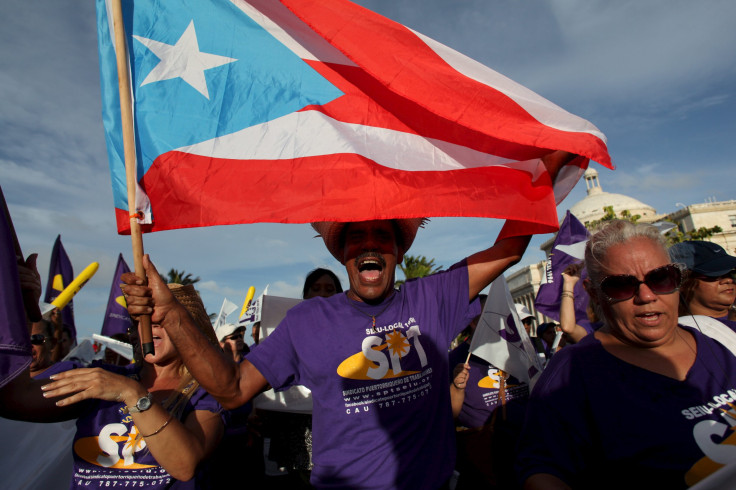When Will Puerto Rico Default? Government Refuses To Pay Debt Payments

Puerto Rico on Friday said it will default on $779 million worth of constitutionally backed debt, its most senior bonds, making good on threats that the island would choose paying essential services for its citizens over obligations to creditors.
Debt payments totaling just over $2 billion were due on Friday. Gov. Alejandro Garcia Padilla told reporters on Friday that overall the U.S. commonwealth territory will not pay $911 million worth of its obligations.
The U.S. territory's finances will soon come under a U.S. federal oversight board after U.S. President Barack Obama signed into law on Thursday a bill giving the island access to a debt restructuring process, and implementing a halt on litigation arising from any defaults on its $70 billion debt load.
"Today, Puerto Rico is protected against creditors’ actions," Garcia Padilla said.
The General Obligation (GO) debt, or debt that carries a GO guarantee, is a category of debt that has not been defaulted upon by any U.S. state in decades. Puerto Rico is not covered by Chapter 9 U.S. bankruptcy code which applies to municipalities.
Puerto Rico's Government Development Bank (GDB) said on Friday the island would have just $95 million in cash at the end of the year even after the defaults announced on Friday.
Puerto Rico's benchmark 2035 GO bond rose 0.25 points in price to trade at 67.50 points, pushing the yield down to 12.519 percent.
On Thursday Garcia Padilla authorized Puerto Rico, under a locally written debt moratorium law, to suspend some of the $2 billion in debt payments due on Friday.
The developments on Friday represent the nadir of a decade-long effort by Puerto Rico to avoid economic collapse. The island is hamstrung by emigration and a 45 percent poverty rate.
"Even if the Commonwealth were to devote every last penny in the (accounts) to debt service on July 1, it would still owe holders of the public debt hundreds of millions of dollars," the GDB said in a statement on Friday.
Some of the debt expected to be defaulted upon such as PBA (Public Building Authority) ex-series L bonds will be mostly covered by reserve funds held by the trustee bank. Nearly all of the payments due on the Puerto Rico Infrastructure Financing Authority (PRIFA) Bond Anticipation Notes (BANs) will be covered by reserve funds as well.
If some of the debt is covered by insurance policies, some creditors could receive a portion of their payments.
The GDB, Puerto Rico’s primary fiscal agent, said the island has only $200 million in its operating account, and another $150 million in revenue that was redirected in recent months away from other debt payments.
Even if the island continues emergency measures like suspending vendor payments and withholding contributions to a pension fund that is already insolvent, the operating account will still run out of cash in 30 to 60 days, the GDB said.
"We knew this day would come, that they would default, and it is here. It was a good thing they passed PROMESA, even at the eleventh hour," Ted Hampton, senior credit officer at Moody's Investors Service, said, referring to the Puerto Rico Oversight, Management and Economic Stability Act (PROMESA).
Late on Thursday the island's legislature approved an $8.9 billion fiscal 2017 budget, which now awaits Garcia Padilla's signature.
In the wee hours of Friday, Puerto Rico released long-awaited audited financial statements for fiscal year 2014, more than a year late.
The statements, audited by KPMG, showed, among other things, that Puerto Rico’s largest public pension has exhausted its assets and is now insolvent. Puerto Rico’s pensions have among the largest funding gaps in U.S. history.
"When I entered office, Puerto Rico was property of Wall Street," Garcia Padilla said, adding: "Today, everybody concludes that we have been telling the truth about Puerto Rico’s fiscal condition."
© Copyright IBTimes 2024. All rights reserved.





















